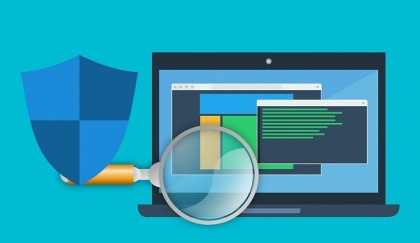How to Choose the Right Antivirus Software for You
The road to a safer device starts with installing the right antivirus program. In fact, our studies on ‘Digital Security Checklist for Windows 10’ found that there are more than 100,000 active types of viruses — all of them with equal potential to do irreversible damage to your computer. From corrupting your files to locking you out of your own computer, viruses pose a threat that’s hard to resolve once it has done its part in damaging your computer.
So this begs the question: ‘What antivirus software should you choose?’ Here are five things to consider before choosing Antivirus:
Table of Contents
1. Protection Coverage
A good antivirus won’t just protect you from viruses; it will safeguard you from other security threats too like trojans, worms, rootkits, and spyware. Kaspersky Anti-Virus is able to protect you from all that and more, as its security package focuses on one core security essential — web filtering. With a reliable engine that detects and removes threats before it even touches your computer, Kaspersky can confidently say that it covers all bases. That is, by dealing with malware directly from its source.
2. Performance Impact
Security programs, by nature, require a lot of computing resources to do its job. Therefore, you have to consider the antivirus’ impact on your computer’s speed. Usually, this depends on your hardware’s processor. The higher ones (Intel i7 and beyond) can run most antivirus programs without slowing down your computer — but for those with older processors, consider Avast, SecureAPlus, or even Webroot for your antivirus needs. After all, they all need under 1GB RAM to function.
3. User-friendliness
Even the best antivirus software becomes unusable if it’s hard to navigate, which is why you should always be looking for software with an easy-to-understand interface. To this end, HP suggests finding “a set and forget” cybersecurity program, such as the Panda Free Antivirus. This means that you’ll only have to toggle with the settings once, and your device should be safe for the long haul. Recommended for complete cybersecurity novices, Panda’s straightforward interface and comprehensive summaries can be what stands between you and the next big cyber threat — and thankfully, the program delivers.
4. Pricing
Antivirus programs aren’t free, unless you only want the bare minimum protection. If you want a particularly good deal, Vents Magazine highly recommends PC Matic. This antivirus software is one of the cheapest on the market, with an annual subscription of $50 that’s valid for up to five devices. If you’re satisfied with its services, you can get a lifetime subscription for $150. It comes with a free smartphone optimizer and adware preventer too, for safe browsing across multiple platforms.
5. Customer Support
No antivirus is perfect, so it helps if the software has reliable customer support in case something goes wrong. Aside from the usual email support, which may take the antivirus team anywhere from hours to days to get back to you, programs like Norton have the option of chatting live with an engineer for particularly urgent requests. Live chat is an excellent way to quickly get in touch with an agent and talk to them about your problem. Plus, the wait times are much shorter than they are for phone-based support.
Every antivirus will have its pros and cons, so it’s important to do your research. Check how much RAM they need to function, if they have the coverage that you’re looking for, and if their subscriptions are within your price range. By carefully considering these factors, you should be able to choose the right software that meets most, if not all, of your criteria.
Follow Us On:

That’s really helpful for me, thanks for such amazing content.